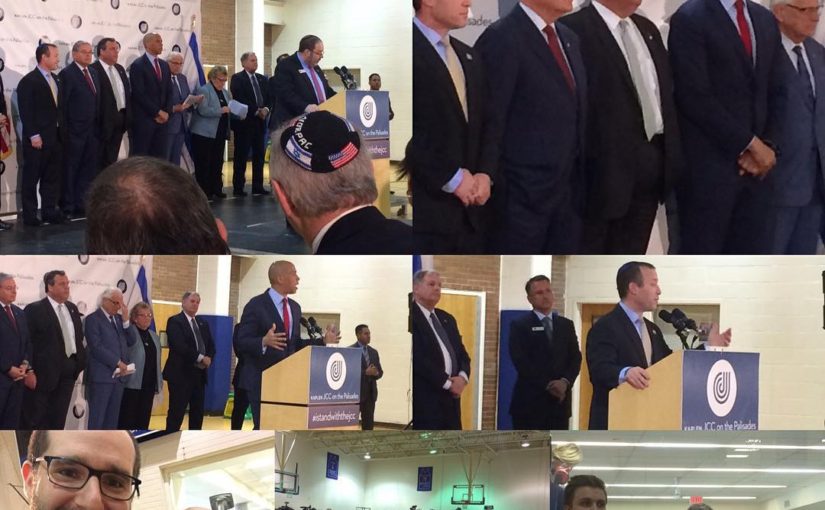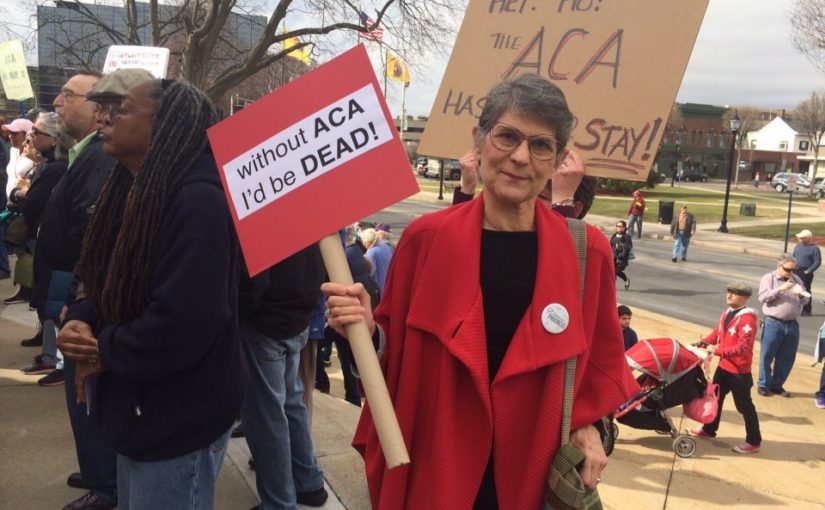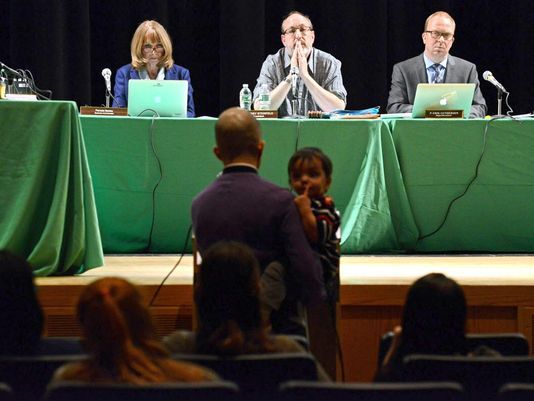My message for the Unity in the Valley Event hosted at Pascack Valley High School on March 19, 2019. Unity in the Valley is a community organized gathering to encourage inclusion and fight back against recent examples of antisemitism and more.
****************************
I want to start my remarks tonight with a simple question: what’s your favorite recipe? Now, it’s okay to take a few moments to think about it because it might not be the easiest question to answer. I’m not asking you to name your favorite thing to eat or what restaurant you like to go to. No, what I want to know is: what’s your favorite recipe? What dish, or meal, do you love to make or, if you don’t cook, what recipe does someone make for you that reminds you you’re loved? Once you figure out an answer to that question, hold onto it, because we’re going to use it in a few short minutes.
Now, as person of faith who didn’t grow up with one, I’m fascinated by the stuff of religion. There’s the big things like the rituals, the prayer books, music, and art. But there’s also the little things – like what faith communities choose to post on their bulletin boards and what little booklets they keep by the front door that no one ever picks up. One of those things I sometimes find in the lobbies of many different kinds of faith communities is: that community’s cookbook. They were usually published at least 10 years before, the pages are now yellowed, and the whole thing is bound together by an oddly colored piece of plastic. In Christian communities, we usually make these as a kind of fundraiser, asking people to submit recipes they want to share with everyone else. And these cookbooks are always filled with recipes you can’t find anywhere else. Sometimes, you’ll read about a chutney or hummus that someone’s mom used to make. But you’ll also find things that are a tad…frightening. As a Lutheran Christian, those kinds of recipes usually involve a casserole dish, jello, a fruit you’ve never heard of, and a can of tuna fish. When you read these cookbooks, you’ll wonder if someone submitted something just to punk you. Yet, you’ll also discover something beautiful. You’ll be invited to make that pineapple cake that someone always brings whenever there’s a funeral. And you’ll be able to taste the rice and beans someone prepares every time a church member is in the hospital, leaving it on the family’s front porch with a note saying we’re thinking of them. These cookbooks are more than just a collection of recipes. They’re a collection of stories – passed down from generation to generation – meant to be shared during incredible celebrations and to bring hope in moments of incredible sorrow. Our favorite recipes do more than tell others what we like to eat; they show our neighbors a bit of who we are, where we come from, and what makes us, us. We all carry within us a cookbook of recipes that lets other people know the entirety of our story.
But the cookbooks we carry are not, I think, meant to be only for ourselves. When we eat, we’re meant to eat together. Many of our faith and cultural traditions are centered at the table, at the place where dishes are served and meals are shared. Because we are invited to do more than just eat. We are here to get to know each other. The recipes we share are an opportunity for us to be vulnerable, to share a part of our tradition, our history, and our soul with someone else. The table is where we get to be human and that creates an opportunity for unity that is honest with itself and its past. The meal we share is how we discover each other’s joys and struggles. But it’s also a moment for confession, when we finally see how our way of life has negatively impacted another. It’s there where we reflect on the fullness of our story and admit the ways we didn’t take seriously the story of the other. It’s at the table when our -isms and -phobias breakdown. Antisemitism, sexism, racism, islamophobia, homophobia, and every other wall we build to deny people a place at our table is undone. When we take seriously what it means to really share a meal with your neighbor, we’re no longer in a position to hate and harm each other. Instead, we’re called to feed each other, to serve one another, and to help each other thrive.
And that calling isn’t always easy. Sharing a meal together will always take risk. We need to be honest and to admit the ways we’ve hurt one another. As a Christian, I have to name, outloud, the ways my faith has been used to hurt and harm people. I have to acknowledge how we have, wrongly, denied people a place at our tables because of who they are, who they love, or where they come from. We haven’t done enough to live into the reality of our faith tradition, about a Jesus who kept getting in trouble for sharing recipes and meals with people he wasn’t supposed to. But we can, and we will, change that. We’re not here to deny someone a place at the table. Instead, we’re here to eat and to be fully human, together.
So what’s your favorite recipe? Who taught you it and why? Was it your grandma’s cookies, your brother’s chili, your best friend’s gluten-free mac and cheese, or that recipe you found online that you cooked all on your own for the very first time? I want you to turn to the person next to you and take the next minute to share that recipe with them, why it’s important to you, and how you’re going share your table with someone new.


